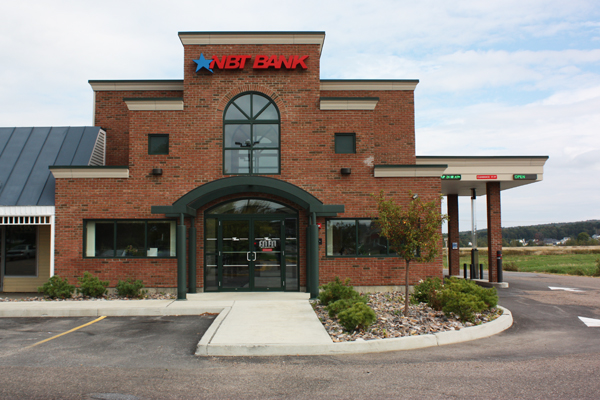As businesses and consumers adjust to latest shifts related to pandemic recovery and the economy, we are all mindful the many changes we have experienced in the last several years and are asking ourselves and others, “What’s next?”
For small businesses, the challenges have been relentless to say the least. With inflation, supply chain issues, rising interest rates and the potential for a recession ahead, it does not look like things are getting any easier. NBT Bank offers a few tips for managing what lies ahead.
Pay attention to your liquidity and cash-on-hand
Depending on your specific business and industry, supply chain issues could pose a major challenge—and it could be ongoing. International shipping rates continue to go up, and recent spikes in COVID infections in certain areas coupled with subsequent lockdowns in China are just two issues that could impact your own supply chain. Many businesses are struggling to get the parts and supplies they need to stay operational and provide timely service to customers—if they can receive their needed parts or supplies at all.
Having sufficient liquidity enables you to adjust and find other suppliers if needed or at least “weather the storm” in the short term. Additionally, purchasing equivalents to remain in business may rest on payment ability, so having enough cash on hand at a level higher than pre-pandemic times is most likely be warranted.
Lines of credit have always helpful but could be a necessity now
Along a similar track, think carefully about lines of credit. If you have a line of credit, you might want to think about increasing it so that you have an additional working capital “cushion.” Inflationary pressures seem not to be abating anytime soon and having enough in your line of credit might help you keep operating smoothly without disruption (either from your customers or suppliers).
Small businesses that do not have a line of credit should consider putting one in place. Having funds available for unanticipated expenses, repairs or similar situations is important in this unsettled economic environment. The ability to draw on a line of credit could make a significant difference in the days to come.
Rising interest rates
If you have a variable rate loan that can be converted to a fixed-rate product, it would be a good time to seek to lock in your rate now. The Federal Reserve kept interest rates at near zero throughout the pandemic. With inflation staying stubbornly high, the Fed is likely to continue increasing interest rates in an effort to cool things down. If possible, locking in a low rate now may save you a considerable amount of money in interest payments going forward.
If you are working with adjustable-rate loans that cannot be changed to fixed-rate, work with your business banker to develop a banking strategy that may help protect your bottom line. While it’s unlikely that we’ll return to the sky-high interest rates this country experienced in the early 1980s, a lot depends on how the economy responds to these modest interest rate increases. Having a plan could make a big difference.
Employee retention
Don’t forget that your employees are feeling the pinch of this unsettled economy, too. And, with job openings plentiful, they have more options than ever. Understand the needs of your employees. You don’t want to lose employees for reasons that you can control and address—especially in this environment. That might mean pay raises, changes to benefits or greater flexibility. You might look at your balance sheet and think it’s impossible to increase salaries or offer more benefits. Keep the tight labor market in mind and be creative. Talk to your employees about what matters to them most.
Cybersecurity
The pandemic has increased remote work situations and amplified a reliance in online banking. Combined with recent global political unrest including the war in Ukraine, cyber threats have increased significantly. Small businesses need a level of protection that they have probably never had before, and threats seem to be coming in many ways. If your employees have remote access to work systems on their home computers or mobile phones, something as seemingly innocuous as clicking on a certain link or video could unleash malware that compromises your network. Check in with your business banker and your business insurance provider for help reviewing your cybersecurity risk profile and what you might need to put in place to protect your business.
It’s premature to say that the pandemic is in the rearview mirror, and it’s hard to say what will come next. That can leave businesses feeling unmoored. It helps to be proactive and one of the best things you can do right now is to map out plans that address multiple contingencies. Stay in touch with your banker—they can help by offering expertise that will help your small business thrive.

